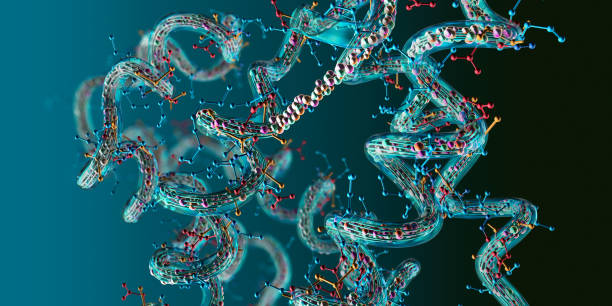What are peptides? A deep dive into their role in health, skincare, and beyond
Peptides have taken the world by storm, making their way into everything from cutting-edge medical research to high-end skincare products. But what are peptides, and why are they generating so much interest? In this blog we will answer a few questions about this topic and we will break down everything you need to know about peptides, including what are peptide bonds, what are peptide hormones, and what are peptides used for.
What are peptides?
At their core, peptides are short chains of amino acids—the building blocks of proteins. Unlike full proteins, which can contain hundreds of amino acids, peptides are typically composed of 2 to 50 amino acids. This smaller size makes them more bioavailable, meaning they can be absorbed and utilized by the body more efficiently.
Peptides occur naturally in the body and play crucial roles in numerous biological functions, including cell communication, immune system regulation, and tissue repair. Thanks to advancements in science, peptides can now be synthesized for use in supplements, medications, and skincare products.
What are peptides used for?
Given their diverse biological functions, peptides have found applications in various fields. In medicine, peptides are widely used for treatments ranging from diabetes management to hormone regulation and immune system support. Many fitness enthusiasts turn to peptide-based supplements to enhance muscle growth, improve recovery time, and aid fat loss. The beauty industry has also embraced peptides, incorporating them into anti-aging products designed to stimulate collagen production and support skin renewal. Beyond these applications, peptides are being explored for their potential in cognitive health, with research suggesting they may improve memory and brain function. They are also used in regenerative medicine, where they contribute to faster tissue repair and immune support.
Peptides are gaining significant attention for their effectiveness, making them a valuable tool for various health and wellness needs. If you’re interested in exploring high-quality peptides, check out our peptide shop for the latest innovations.
What are peptide bonds?
To understand peptides, we need to answer: what are peptide bonds? A peptide bond is a chemical bond that links amino acids together to form peptides and proteins. These bonds are created through a process called condensation, where a molecule of water is removed as amino acids join together.
Peptide bonds are essential for life, as they form the foundation of proteins in the body. Proteins are responsible for critical functions such as muscle structure, enzyme activity, and cellular repair. The stability of peptide bonds ensures that proteins maintain their shape and function correctly within the body. Understanding peptide bonds is crucial in scientific research, particularly in the development of peptide-based medications and supplements.
What are peptide hormones?
Another critical area of peptides is their role as hormones. But what are peptide hormones, and why are they important?
Peptide hormones are signaling molecules made up of amino acids that regulate various physiological processes. Unlike steroid hormones, which are fat-soluble and act inside cells, peptide hormones bind to receptors on the cell surface, triggering specific actions. These hormones play essential roles in metabolism, growth, and cellular communication.
Peptide hormones include:
- insulin, which regulates blood sugar levels;
- growth hormone peptides, which supports tissue growth and metabolism;
- oxytocin, which is involved in social bonding and childbirth;
- glucagon, which plays a crucial role in glucose metabolism.
As peptide hormones are central to many functions, they have become a major focus in therapeutic treatments, with researchers developing peptide-based drugs to manage conditions such as hormonal imbalances and metabolic disorders.
What are peptides in skin care?
Skincare is one of the most exciting areas of peptide research. If you’ve been wondering what are peptides in skin care, the answer lies in their ability to stimulate collagen production, improve skin elasticity, and reduce signs of ageing. Anti-aeging peptides work by sending signals to skin cells, encouraging them to produce more collagen and elastin, which results in firmer and more youthful-looking skin.
Collagen, the protein responsible for keeping skin firm and smooth, naturally decreases with age. Peptides help combat this decline by promoting collagen synthesis, leading to improved skin texture and hydration. In addition to their anti-ageing benefits, peptides can also support wound healing and strengthen the skin barrier, making them a powerful ingredient in modern skincare products. Many of the best anti-ageing creams and serums now include peptides due to their scientifically proven effectiveness.
Now that we know how peptides work in skincare, let’s focus on what are peptides for skin care and their different types. There are various peptides used in beauty products, each offering specific benefits for the skin.
Signal peptides, for example, are known for their ability to stimulate collagen production, helping to maintain skin elasticity and reduce the appearance of fine lines. Carrier peptides play a different role by delivering essential minerals such as copper to the skin, which supports healing and tissue repair. Another category, enzyme inhibitor peptides, helps slow down the breakdown of collagen and elastin, effectively preventing premature aging. Additionally, neurotransmitter inhibitor peptides work similarly to Botox by relaxing facial muscles and minimizing expression lines.
Peptides are a game-changer in skincare, offering scientifically proven benefits that help maintain a youthful and radiant complexion. With consistent use, peptide-based skincare products can lead to noticeable improvements in skin tone, hydration, and overall health.
Final thoughts: why peptides matter
From what are peptides used for to their role in skincare, health, and medicine, peptides are proving to be a revolutionary discovery. Their versatility allows them to be used in various industries, from medical treatments to athletic performance enhancement and beauty care. The ability of peptides to communicate with cells and stimulate biological processes makes them a valuable asset in improving overall health and well-being.
Whether you are interested in peptides for their ability to support muscle recovery, regulate hormones, or improve your skin, they offer scientifically backed solutions with immense potential. Ongoing research continues to unveil new peptide-based treatments, ensuring that their role in modern medicine and personal care will only expand in the future.
If you’re ready to experience the benefits of peptides, explore the latest innovations at Dn Research and take your wellness journey to the next level!

